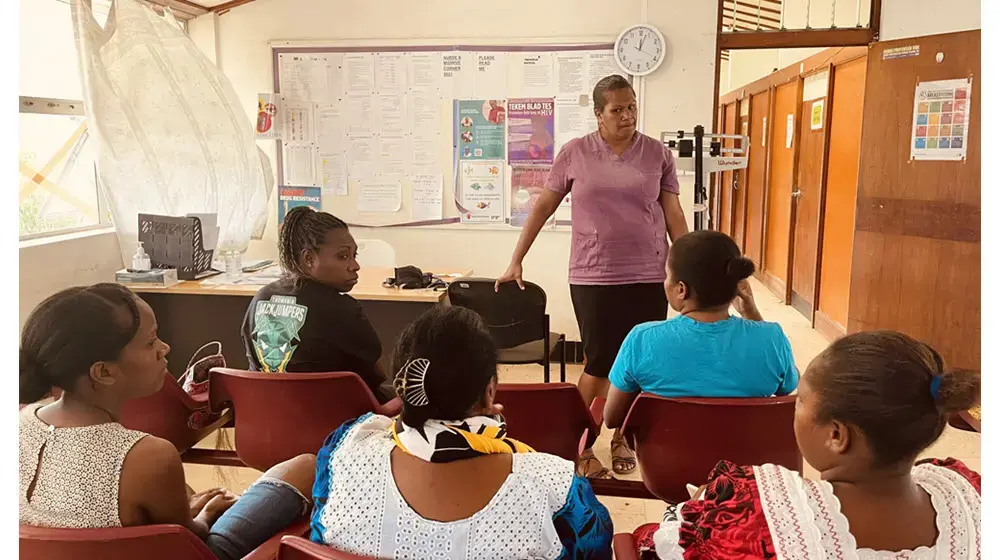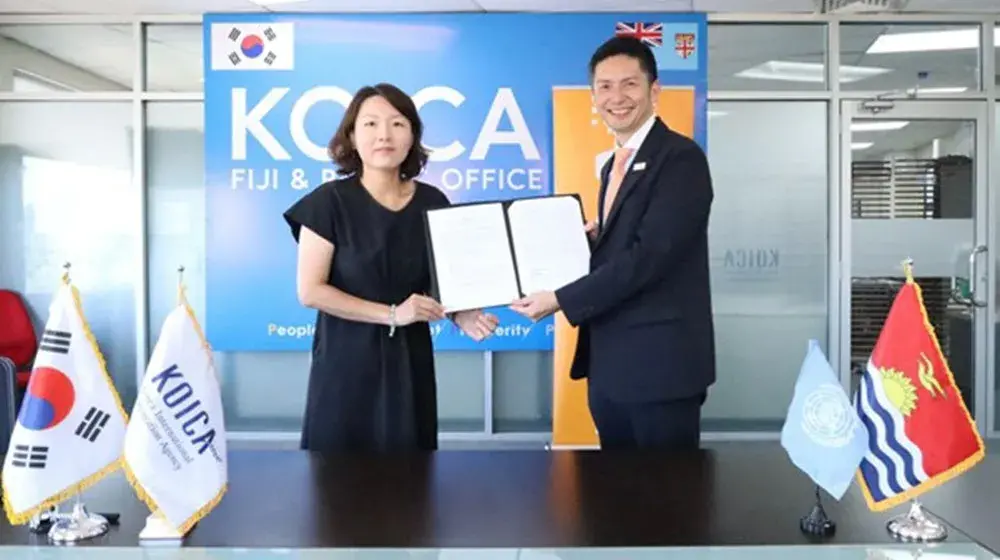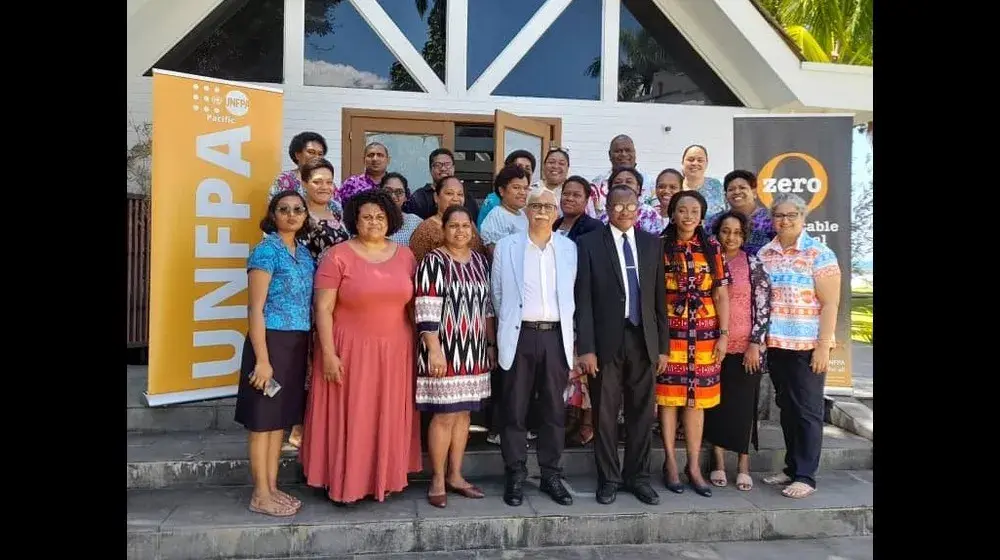REBWA Teakireke has been a nurse for 10 years in Kiribati; the vivacious 39-year-old is a delight to talk to, she unwittingly impresses upon you that she is exactly where she wants to be as far as a career choice is concerned: a staff of Tungaru Central Hospital's maternity ward on Tarawa.
As a fresh Kiribati Nursing School graduate in 2003, Teakireke was posted to Maiana for the first four months and then Tabiteuea North for the next year - two outer islands where the realities of being the only medical person for miles around meant she had to do more than she thought were her core responsibilities - from diagnosis, treating minor cuts to delivering babies.
"When you find yourself out there, you realize that what you are taught in the classroom and the situations we have to deal with can be two very different things but you just do the job, you have to show the people depending on you that you can be trusted," she said.
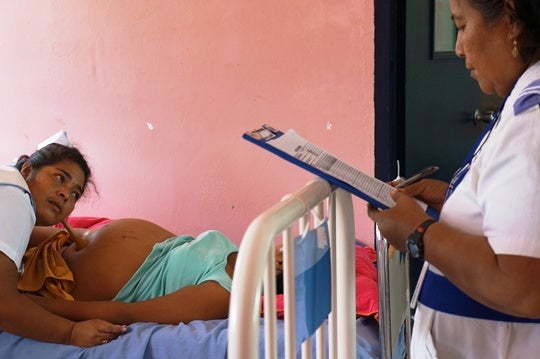
What comes across as an experience that continues to elicit raw feelings of disappointment is the death of an infant whose mother she, Teakireke, was attending to during labour. One can only imagine the psychological impact this had on a young nurse.
Teakireke continued to work in the islands which she attributes her extensive practising experience to, having to improvise at times, nurturing the responsibility she felt towards the good health of the population she served.
While no other infant death occurred on her watch, that one incident haunted her; she acutely felt the mantra: one death is one too many. Teakireke eventually chose to leave practising for a couple of years after that to study midwifery.
Returning to school to complete a midwifery course brought her out of her comfort zone but she says it was well worth the break from full-time work. The field of medicine she acknowledges is rife with opportunities of sad endings but to work in isolation (from the main centre and from bigger medical facilities) is not as daunting as before.
"With the midwifery course, I am now a lot more confident; I have learnt a lot more and I would welcome a chance to go back to the islands," Teakireke said, the excitement returning to her face.
Working quietly next to her in the delivery room is Rota Etera, a 58-year-old retired nurse who has been re-contracted by the Ministry of Health. Etera has not only completed the midwifery course but is also a graduate of the UNFPA-sponsored sexual and reproductive health training which was offered at the then Fiji School of Medicine (now the medical faculty of the Fiji National University). Etera who also holds a Bachelor of Nursing Science has been a nurse since 1974.
"Midwives care for two people - the mother and the baby. The skill set of midwives is critical if there is complication during births and for us who work in countries with many islands, it is good to consider pursuing it once you have had some experience on the field. I for one really want to see the infant deaths reduced, especially in Kiribati," Ereti said.
"Training is very important for student nurses - they have to do so much more than their core functions when they are in health centres in the islands. Ongoing training also means we learn new protocols, we refresh our minds and keep doing better as nurses."
Kiribati has had one of the lowest rates of skilled birth attendants in the Pacific; in 2004 there were six maternal deaths. However, since 2008 the number has reduced significantly with one or two maternal death reported each year.
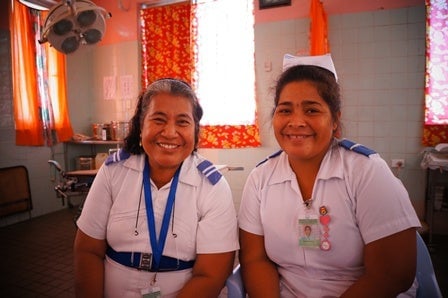
Causes of maternal or infant mortality vary and for the 16 million girls aged 15-19 who give birth each year globally, complications from pregnancy and childbirth is the leading cause of death among girls in this age group, especially in developing countries.
Etera passionately advocates for comprehensive sexuality education; she has seen far too many adolescent girls spoil their chances at being empowered independent individuals through higher education as pregnancy usually means dropping out of the school system.
"I have seen how scared they get when they are in the ward or arrive when the (labour) pains begin - it is heartbreaking and they immediately ask for caesarean which we cannot perform unless the safe live birth of the baby or the life of the mother is at stake," Etera said.
"We all know that young people experiment sexually and if they do not learn in a holistic manner the science of child-bearing, and the responsibilities that come having babies or the impact this has on their lives then we will continue to see a high rate of teenage pregnancies."
In 2012, the United Nations Population Fund (UNFPA) Pacific Sub-Regional Office (PSRO) contributed to the improvement of quality of service through the up-skilling of 197 doctors, midwives, nurses and health works in basic and comprehensive emergency obstetric care (EmOC), and updating and developing EmOC guidelines in several countries.
In Kiribati, UNFPA PSRO facilitated training for emergency obstetric and neonatal care (EmONC) for 10 senior midwives. As of 2012, in terms of comprehensive sexuality education, the Kiribati family life education syllabuses for Year 7-9 was reviewed and is now ready for public consultations with seven senior educators and health staff; 15 teachers and four curriculum development unit officers were trained as well in family life education.
The maternal mortality ratio (MMR) tends to be higher in large Melanesian countries with Fiji reporting 12 maternal deaths in 2012, Solomon Islands 12 and Vanuatu 8.
Fiji for now is focusing interventions on improving the quality of basic EmOC in its subdivision hospitals - to assist Fiji, the UNFPA PSRO presented $0.5 million worth of EmOC equipment to the Ministry of Health in April (2013).
The training and upskilling of health workers is part of the UNFPA mandate; our continued support to governments in these areas is bearing fruits but a holistic approach is critical to strengthen all aspects of the good health of our people.
- This is part of a series of columns provided for publication to Fiji's largest national daily newspaper, The Fiji Times

